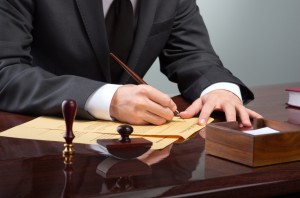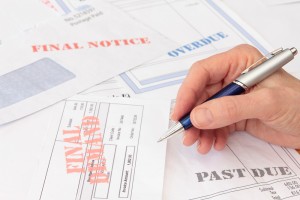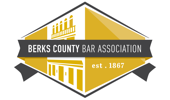Bankruptcy Law
What is Bankruptcy?
Bankruptcy is a system of federal laws created by Congress to reduce or cancel debts and give you a fresh start. For the average consumer, there are two basic types of bankruptcy a chapter 7 straight bankruptcy and the chapter 13 personal reorganization. The laws that apply to each are complex and require an attorney to explain their effect properly.
As a general rule, chapter 7 bankruptcy eliminates most debts such as medical bills, credit card balances and unsecured loans completely. If you keep your car or house and you still owe money, those obligations will still be owed and if you want to keep those assets, you will have to continue to make those payments. Provided those payments are manageable, chapter 7 will provide you with substantial relief. For some people, managing those payments without reducing them remains a difficult task. In those cases, chapter 13 is a better option.
With a chapter 13, you can adjust the payments on secured loans, reduce interest rates and reduce balances. In addition, chapter 13 is a great remedy to help you keep your home if you are behind in your mortgage payments as it provides the means to allow you to catch up over a period of time. Reorganization plans set up new monthly payments for three years, but can be extended for as long as five years. A chapter 13 may also allow you to keep property that you might lose in a chapter 7 bankruptcy.
Under the new Bankruptcy Abuse Prevention and Consumer Protection Act of 2005, if the debtor’s current monthly income is more than the state median, the Bankruptcy Code requires application of a means test to determine whether the chapter 7 filing is presumptively abusive. Unless the debtor overcomes the presumption of abuse, a chapter 7 case will generally be converted to chapter 13 or will be dismissed. Thus, a debtor’s decision to file under a particular chapter of the Bankruptcy Code is largely impacted by the application of the means test.
How much does bankruptcy cost?

The cost of bankruptcy will depend on the type of bankruptcy required to address your financial situation and the complications of your case. In addition, fees vary among lawyers, based on their experience and what is included in the fee. So make sure you are comparing apples to apples if you plan on shopping around.
It is only natural to want to get the best price . . . but remember quality and service are extremely important when it comes to legal services. After all, your financial well-being affects all aspects of your life. In our practice, an attorney with substantial experience and competence will handle your bankruptcy. Every client is interviewed personally by the attorney handling his or her file and contact with that attorney is maintained throughout the process. This is not always done in the discount bankruptcy mills. We take personal responsibility for you and represent you with the quality, dedication, commitment and respect that you deserve. To discuss fees that would apply in your case, contact us.
Can I still file for bankruptcy now that the bankruptcy laws have changed?
Yes. Although the Bankruptcy Abuse Prevention and Consumer Protection Act of 2005 (effective on October 17, 2005) makes many changes to already existing bankruptcy laws, bankruptcy is still an available option for those seeking debt relief. Under the new law, your decision to file under a particular chapter of the Bankruptcy Code may be affected by your income level and the state in which you reside. In addition, debtors will be required to meet additional requirements, such as completion of an approved financial counseling course prior to filing. Nonetheless, bankruptcy is still a system designed to provide debtors with a fresh start, and is an option which has not been eliminated by the new law. An analysis by experts has shown that the vast majority of Chapter 7 debtors under the old bankruptcy law (96.4%), had they been subjected to the means test, would still have been able to file under Chapter 7.
How quickly will my creditors get notice of my bankruptcy?
Immediately. Creditors must stop collection efforts once you have filed your bankruptcy petition, or they may be liable for court sanctions.
Do I have to pay my bills during the bankruptcy proceeding?
For the most part, the answer is no. For specific property (usually secured) such as your car loan or home mortgage that you plan on keeping, it will probably be necessary for you to continue to make those payments. You will not need to make payments on other old debts incurred prior to the bankruptcy such as credit card debts, medical bills or unsecured personal loans.
Does bankruptcy ruin my credit?
 Although the record of filing bankruptcy may technically stay on your credit for up to ten years, often by making payments on time subsequent to your filing you can regain a good credit rating within two years of your discharge. In many cases, filing bankruptcy may actually help your credit rating as the numerous negative credit entries on your report will be eliminated and replaced with information regarding your bankruptcy. Positive credit information, however, is retained in your credit report.
Although the record of filing bankruptcy may technically stay on your credit for up to ten years, often by making payments on time subsequent to your filing you can regain a good credit rating within two years of your discharge. In many cases, filing bankruptcy may actually help your credit rating as the numerous negative credit entries on your report will be eliminated and replaced with information regarding your bankruptcy. Positive credit information, however, is retained in your credit report.
What is Chapter 7?
Chapter 7 or straight bankruptcy is the most common form of bankruptcy. It is designed to eliminate unmanageable, unsecured debt to give you a fresh start. However, some debts cannot be eliminated such as child support and alimony, debts arising from drunk driving or fraud, some student loans and some tax debts. Often times, using a chapter 13 can solve problems with these debts. As soon as a chapter 7 is filed, the federal court issues a stay requiring all creditors to stop collection action against you. A trustee is appointed to review your financial affairs and sell any unprotected assets. In over ninety-six per cent of the consumer chapter 7 cases, a bankrupt chapter 7 debtor keeps everything he or she owns. When your chapter 7 case is complete, the bankruptcy court will issue you a discharge order, which forever prohibits collection action on any of the debts listed in your bankruptcy.
What is Chapter 13?
Chapter 13 is a type of bankruptcy proceeding in which individuals, even if self-employed or operating an unincorporated business, file a plan with the bankruptcy court to reorganize or restructure their debt. The plan you file will be designed over a three to five year period, depending on whether your current monthly income is greater than or less than the applicable state median. The monthly payment is based on both what you can afford and satisfaction of debts that would remain unaffected in a chapter 7 case. Plan payments are made to a court appointed trustee who then pays your creditors according to the plan. Chapter 13 can often solve problems and offer relief not available under a chapter 7 bankruptcy. You can keep your assets, stop home foreclosures and extend the period to get caught up on back mortgage payments; in certain cases, eliminate second and third mortgage loans; protect co-signers and modify repayment terms on loans secured by your personal property. For an unincorporated business, chapter 13 can provide a reorganization alternative at a fraction of the cost and hassle of a chapter 11 bankruptcy. A chapter 13 debtor is entitled to a discharge upon completion of all payments under the plan so long as the debtor certifies that all domestic support obligations are satisfied, has not received a discharge in a prior case filed within a certain time frame, and has completed an approved course in financial management.
Will I be required to go through credit counseling?
 Credit counseling is a requirement that must be met by consumer debtors filing for bankruptcy. In order to meet this requirement, during the 180-day period preceding the filing of bankruptcy, the debtor must complete a program with an approved nonprofit budget and credit counseling agency. Such a program may include, but is not limited to, one conducted by phone or over the internet. Unless an exception applies, as a condition to filing bankruptcy, the debtor must file with the court a certificate from the agency describing the services offered, and, if a debt repayment plan was created, the debtor must file that plan. In addition to this initial credit briefing, you will not receive a discharge unless you have completed an education course in personal financial management as approved by the U.S. Trustee.
Credit counseling is a requirement that must be met by consumer debtors filing for bankruptcy. In order to meet this requirement, during the 180-day period preceding the filing of bankruptcy, the debtor must complete a program with an approved nonprofit budget and credit counseling agency. Such a program may include, but is not limited to, one conducted by phone or over the internet. Unless an exception applies, as a condition to filing bankruptcy, the debtor must file with the court a certificate from the agency describing the services offered, and, if a debt repayment plan was created, the debtor must file that plan. In addition to this initial credit briefing, you will not receive a discharge unless you have completed an education course in personal financial management as approved by the U.S. Trustee.
Will filing bankruptcy stop my bill collector from taking action?
Yes. When you file bankruptcy, federal law imposes an automatic stay which precludes your creditors from taking any action to collect debts against you, including court judgments and tax debts, during the pendency of the bankruptcy. Wage garnishments or repossession efforts are also halted. However, if a chapter 7, 11, or 13 case is filed within one year after the dismissal of an earlier case the stay in the second case terminates 30 days after the filing unless you demonstrate that the second case was filed in good faith. In addition, a landlord may continue with an eviction where there is a judgment in possession already entered or where the eviction is based on endangerment of the rental property or illegal use of drugs. There are other exceptions that may apply to your situation that your bankruptcy professional can explain.
How do I select an attorney?
 Bankruptcy is not a simple process. It involves techniques and legal concepts not common in other areas of law. While a person has the right to file a bankruptcy on his own, without the assistance of a lawyer the process is often misunderstood. Therefore, if at all possible, you should retain a bankruptcy attorney to assist you with your case. The area of bankruptcy and business reorganization is one of those areas where proper qualification is especially important, given the cost, complexities and consequences of incorrect action. When meeting with a lawyer, be sure to get as much information and ask as many questions as possible. Some questions you may want to ask include how much experience does the attorney have in practicing bankruptcy law; how many years has he or she done bankruptcy work; what percentage of the practice is bankruptcy related, how many business reorganizations has he or she handled for debtors and how successful those cases have been. The American Bankruptcy Board of Certification is the only entity certifying specialists in bankruptcy at the present time.
Bankruptcy is not a simple process. It involves techniques and legal concepts not common in other areas of law. While a person has the right to file a bankruptcy on his own, without the assistance of a lawyer the process is often misunderstood. Therefore, if at all possible, you should retain a bankruptcy attorney to assist you with your case. The area of bankruptcy and business reorganization is one of those areas where proper qualification is especially important, given the cost, complexities and consequences of incorrect action. When meeting with a lawyer, be sure to get as much information and ask as many questions as possible. Some questions you may want to ask include how much experience does the attorney have in practicing bankruptcy law; how many years has he or she done bankruptcy work; what percentage of the practice is bankruptcy related, how many business reorganizations has he or she handled for debtors and how successful those cases have been. The American Bankruptcy Board of Certification is the only entity certifying specialists in bankruptcy at the present time.
What should I take when I see an attorney?
When you come in for your consultation, bring a list of all of your assets and their fair market values, as well as a list of your current liabilities and obligations to creditors. If you have access to contracts or security agreements for any assets you pledged as collateral, such as car loans, home mortgages, etc., those should also be brought. Bring a list of business relationships you have and any equity you have in those business ventures. If there are any lawsuits pending or if there have been any judgments rendered against you, bring the legal paperwork relating to such proceedings. Garnishments and tax levies should also be brought to the meeting. Finally, prepare a list of your average monthly income and living expenses such as food, housing, insurance, gasoline and car repairs, etc. You should also bring your most recently filed federal income tax return and copies of all payment advices (like pay stubs) or other evidence of payment received within the past 60 days from all employers. This information will be required by the bankruptcy trustee, so it is important that you are able to furnish these documents.
Should I dispose of my possessions before filing?
 No. If you give, sell or transfer an asset to someone within up to four years before filing, the trustee in bankruptcy can reverse that transfer and deem it fraudulent if it was made for less than the fair market value of the asset. Generally, you should not transfer anything or pay any debts (other than normal monthly bills) before consulting a bankruptcy lawyer. If you have already made such a transfer, it is imperative that you speak to an experienced bankruptcy lawyer before you attempt to reverse any such transaction.
No. If you give, sell or transfer an asset to someone within up to four years before filing, the trustee in bankruptcy can reverse that transfer and deem it fraudulent if it was made for less than the fair market value of the asset. Generally, you should not transfer anything or pay any debts (other than normal monthly bills) before consulting a bankruptcy lawyer. If you have already made such a transfer, it is imperative that you speak to an experienced bankruptcy lawyer before you attempt to reverse any such transaction.
Is my retirement money protected?
Under either opt-out state or federal exemptions, you are allowed to exempt retirement funds to the extent that those funds are in a fund or account that is exempt from taxation under section 401, 403, 408, 408A, 414, 457, or 501(a) of the Internal Revenue Code of 1986. These sections include individual retirement accounts, and qualified pension, profit-sharing, and stock bonus plans. If these funds are exempted, they cannot be liquidated or lost in a bankruptcy. Since there are always exceptions, one should consult with an attorney who has expertise in bankruptcy law to insure that a particular retirement plan is protected.
Do I get to keep my assets?
Just because you file bankruptcy does not mean that you lose your assets or possessions. The purpose of the bankruptcy laws is to give you a fresh start. In order to do that, there are exemption laws, which let you protect and keep certain assets. For example, under federal law, the homestead exemption lets you keep $22, 975 of equity in your home and $45,950 if you own the home jointly with your spouse. You will also usually be able to keep most furniture and personal possessions, including your car and occupational tools. If you have assets that would be taken and liquidated in a chapter 7 bankruptcy, you can still keep them by filing a chapter 13 and setting up a plan to pay into that plan an amount equal to the value of those non-exempt assets. In addition, there may be other exemption laws that apply to protect your assets. Whether or not an asset can be protected by an exemption law can best be answered by a bankruptcy professional.
Do both husband and wife have to file?
Even if you are married, you are not obligated to file a joint case with your spouse. Married people can file a joint case. Two separate cases or one spouse can file for bankruptcy alone. However, if a husband and wife are responsible for a debt and only one spouse files bankruptcy, the creditor has the right to come after the other spouse for the debt. If you have recently married and most of the debts were incurred by your new spouse prior to your marriage, you are not legally responsible for those pre-existing debts. When you marry someone, you do not marry his or her bills.
Will my employer be notified?
Generally, your employer has no way of knowing that you filed a bankruptcy proceeding. The bankruptcy court will not contact your employer, nor will your attorney. Usually, the only way that your employer can know that you filed bankruptcy is if your employer is also a creditor or if you have a garnishment in place and your attorney needs to notify your employer that you filed bankruptcy in order to get the garnishment cancelled. Sometimes in a chapter 13 case, plan payments are paid through a wage deduction.
Can I lower my loan payments?
The idea behind any kind of bankruptcy is to reduce and/or eliminate your debts so that your financial situation becomes manageable. Lowering your payments on secured loans is something that sometimes can be accomplished in a chapter 13 reorganization rather than through a chapter 7 bankruptcy. Chapter 13 reorganization allows you to rewrite loans on terms that you can afford. You can usually lower your payments, cut the interest rate, spread out the payments over time or catch up in back payments, all while under the protection of the bankruptcy court. Chapter 13 often allows you to reduce the balance on your loan. For example, if a car is worth less than you owe, you need only pay the creditor the market value of the car, not the loan balance. This is a procedure called cram down, and it can be used to modify other types of secured loans, such as those on furniture, appliances and business equipment. This cram down procedure, however, is subject to certain time limitations. A chapter 13 plan must provide that a secured creditor retain its lien until the payment of the entire debt, not just the secured portion, where the creditor holds a security interest in a motor vehicle purchased within 910 days of the filing (about 2 ½ years). If you are behind in mortgage payments or other long terms debts, a chapter 13 plan may help you catch up and get back on track.
Can bankruptcy laws help me save my business?
Your business can use the bankruptcy laws to get protection from all creditors while you work out a repayment plan you can afford. Your business stays open and you remain in control. All lawsuits, garnishments and collection actions, including any actions by the IRS, are immediately stopped when a proceeding is filed in bankruptcy court. For sole proprietorships, a chapter 13 bankruptcy can be used to restructure the business debts, often resulting in a significant reduction of the debt to be repaid. For small corporations, a small business chapter 11 proceeding can be used to accomplish these same results.
Does bankruptcy stop the IRS from seizing my business?
According to the IRS rules of engagement, if you are operating a business, owe more than $10,000 in payroll taxes, and are delinquent for three or more quarters, you will be a target for immediate and forceful collection action. This means that they will pursue more garnishments, more asset seizures, and more business shutdowns and generally try to make your life miserable until the taxes are paid. The good news is that you can use the bankruptcy laws to stop all collections by the IRS and any other tax agency and force them to accept a repayment plan that allows you to remain in business. This is accomplished by using a chapter 13 for sole proprietorships or a chapter 11 for corporations. While this is a simplistic answer to the question, the main thing to know is that there is relief from the IRS. You need to consult a qualified bankruptcy attorney immediately.
Creditor harassment
When a person gets behind in paying the bills, creditors often take various actions to collect. Creditors may call home or work, family, friends, fellow employees or even your employer. Co-signers and guarantors may be called upon to make payment. Mortgage holders and other creditors may initiate foreclosure or repossession of cars, furniture, appliances or other items. Lawsuits and collection procedures may be started. Garnishment of wages or seizures of property or bank accounts may begin. The filing of any type of bankruptcy immediately stops all collection efforts against you and your property. Once you file for bankruptcy, creditors leave you alone, stopping all phone calls, lawsuits, collection notices and garnishments. Foreclosures must stop and repossession action must cease. If you file a chapter 13 reorganization instead of a complete chapter 7 bankruptcy, collection actions can also be stopped against co-signers and guarantors on consumer debts. Only a few actions are not halted by a bankruptcy. Criminal proceedings cannot be stopped and actions to establish child support or alimony cannot be halted.
Can I stop a foreclosure and keep my house?
 When you get behind on your house payments, your mortgage holder will start foreclosure and refuse to accept any further payments unless you pay the full amount of the delinquency. If you are unable to do so, the mortgage company may demand that you payoff the debt in full. However, you can use the bankruptcy laws to stop the foreclosure right up to the time of the foreclosure sale. A chapter 13 plan allows you from three to five years to make up the back payments while you maintain the regular payment. This law can also be used to stop tax foreclosure filed by the county for delinquent property taxes. Even if you cannot afford the regular payments, you still can stop the foreclosure. If you have a substantial equity in the property, the bankruptcy court can give you time to sell the property and recover your equity. If you are behind on your house payments, chances are that you are also behind on other creditors too. All of these problems may be resolved by using the bankruptcy laws. The main thing to know is that you can stop the foreclosure and either keep your house or gain time to sell it yourself.
When you get behind on your house payments, your mortgage holder will start foreclosure and refuse to accept any further payments unless you pay the full amount of the delinquency. If you are unable to do so, the mortgage company may demand that you payoff the debt in full. However, you can use the bankruptcy laws to stop the foreclosure right up to the time of the foreclosure sale. A chapter 13 plan allows you from three to five years to make up the back payments while you maintain the regular payment. This law can also be used to stop tax foreclosure filed by the county for delinquent property taxes. Even if you cannot afford the regular payments, you still can stop the foreclosure. If you have a substantial equity in the property, the bankruptcy court can give you time to sell the property and recover your equity. If you are behind on your house payments, chances are that you are also behind on other creditors too. All of these problems may be resolved by using the bankruptcy laws. The main thing to know is that you can stop the foreclosure and either keep your house or gain time to sell it yourself.
Can bankruptcy stop repossession?
When you get behind on payments of a debtor secured by your car, furnishings, appliances or other possessions, a creditor can repossess these items. Even if you voluntarily surrender the property, this may still be regarded as repossession for all legal purposes. Upon repossession, the items will be sold and the money from the sale credited to your account. If the sale proceeds are not enough to pay off the account and costs of repossession, you will be held liable for the difference. At that point, the creditor can take whatever additional collection actions it deems appropriate, including filing a lawsuit against you. The filing of any type of bankruptcy stops all repossessions and stops the creditor from selling the items already in their possession. Filing a chapter 7 bankruptcy cancels the debt. A chapter 13 bankruptcy also stops the repossession, but it allows you to keep the item and restructure the debt. Through a chapter 13, it may even be possible to have a repossessed item returned, if the creditor has not already sold it. It is important to act quickly if you are attempting to stop repossession or recover assets already taken. You should seek the help of an experienced bankruptcy attorney.
Lawsuits and judgments
 The filing of a bankruptcy or debt adjustment plan prevents lawsuits from being filed or judgments taken against you. A pending lawsuit can go no further. A judgment entered against you can go no further without permission from the bankruptcy court. If there are potential lawsuits against you, the bankruptcy court also offers a forum where the dispute can be settled to avoid excess time and expense. A landlord, however, may continue eviction proceedings in certain instances. A bankruptcy may relieve you of the obligation on a judgment already entered, or you may be able to arrange a payment plan over a period of up to five years. Often, bankruptcy can cancel judgment liens on property such as your home, furnishings, appliances and other necessities. Bankruptcy laws and procedures are complicated. If you think you may need to reorganize your debts or file for complete bankruptcy, talk to an experienced bankruptcy attorney.
The filing of a bankruptcy or debt adjustment plan prevents lawsuits from being filed or judgments taken against you. A pending lawsuit can go no further. A judgment entered against you can go no further without permission from the bankruptcy court. If there are potential lawsuits against you, the bankruptcy court also offers a forum where the dispute can be settled to avoid excess time and expense. A landlord, however, may continue eviction proceedings in certain instances. A bankruptcy may relieve you of the obligation on a judgment already entered, or you may be able to arrange a payment plan over a period of up to five years. Often, bankruptcy can cancel judgment liens on property such as your home, furnishings, appliances and other necessities. Bankruptcy laws and procedures are complicated. If you think you may need to reorganize your debts or file for complete bankruptcy, talk to an experienced bankruptcy attorney.
Does bankruptcy stop garnishments?
When any type of bankruptcy is filed – chapter 7, 11, 12 or 13 – the federal bankruptcy court immediately issues a restraining order known as the automatic stay, which requires that all creditors cease all collection activity. This includes the requirement that all garnishments be cancelled. Money taken from your wages or bank accounts after the bankruptcy proceeding is filed can generally be recovered. If a creditor fails to stop a garnishment after a bankruptcy is filed, it can be held in contempt for violating the court’s order and will be liable for damages caused to you, including payment of your attorney’s fees. If you are being garnished, you should consult an experienced bankruptcy attorney immediately to find out your options.
Can I eliminate tax debts, tax levies or tax seizures through bankruptcy?
Taxes can often be discharged (eliminated) through bankruptcy. If they cannot be eliminated, you can still use the bankruptcy laws to force the IRS or the state to accept a payment plan through chapter 13 that you can afford, rather than what they demand. Income taxes are usually dischargeable in bankruptcy if the due date of the return was more than three years ago and the taxes were assessed more than two hundred forty days ago. There are other rules which apply to tax dischargeability and whether your taxes are completely eliminated will depend upon a variety of facts such as whether or not you have filed returns, the date you filed the returns, the date the taxes were assessed, the value of your assets, etc. If the taxes cannot be eliminated, the bankruptcy laws will give you up to five years to pay them without any further penalties being charged. This can significantly reduce the amount you would have to pay the IRS if you attempted to pay the taxes on your own without using the bankruptcy laws. Just as with other creditors, collection action by a taxing authority is topped upon the filing of a bankruptcy. This means that tax levies, property seizures and wage attachments initiated by a taxing authority will be stayed upon the filing of your bankruptcy petition. The rules concerning taxes and bankruptcy are very technical. To find out how they apply to your situation, you should consult an attorney who is experienced in solving tax problems through bankruptcy.
What if I have not filed tax returns?
Chapter 7 and 13 debtors are required to give to the trustee, prior to the meeting of creditors, a copy of the most recent year’s federal tax return and to give a copy to any creditor requesting it. If you are a chapter 13 debtor, you are required to file all necessary tax returns (federal, state, or local) that are required under nonbankruptcy law for the four years preceding the bankruptcy filing, and these must be filed no later than the meeting of creditors. If you fail to file all tax returns required, your chapter 13 plan may not be confirmed. In a chapter 7, 11, or 13 case of an individual debtor, upon request by the court, the U.S. trustee (and presumably bankruptcy administrator), or a party in interest, the debtor shall file a copy of all federal tax returns due while the case is pending, and in a chapter 13 case, these returns must be filed annually.










 View Our Avvo Profile
View Our Avvo Profile
